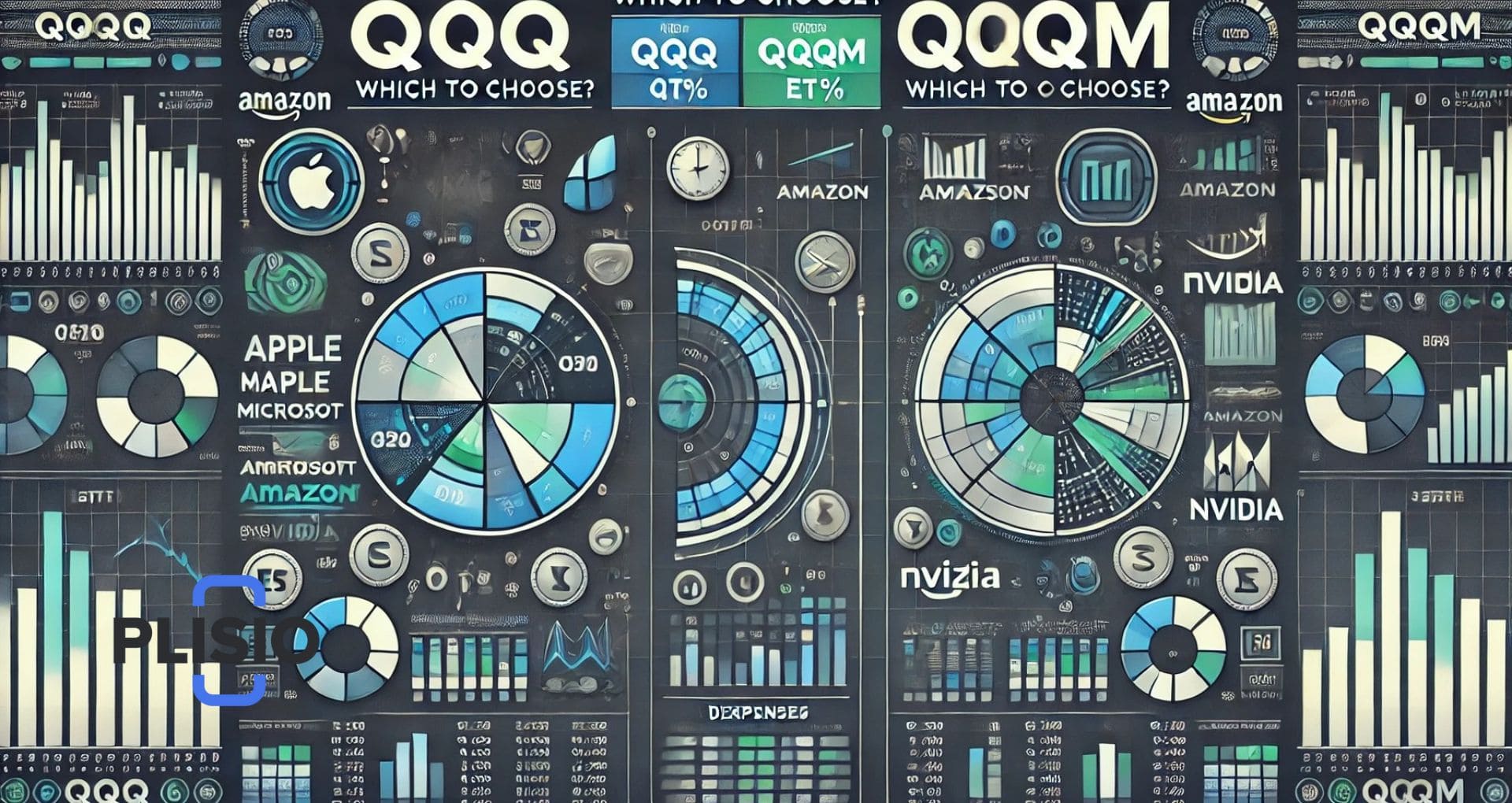QQQ vs QQQM: Which ETF Is Right for You?

Exchange-traded funds (ETFs) have become increasingly popular among investors due to their simplicity, diversification, and cost-effectiveness. Two well-known ETFs that track the Nasdaq-100 Index are Invesco's QQQ and QQQM. Despite their similarities, these funds cater to slightly different investor needs, making it crucial to understand the difference between QQQ and QQQM before making an investment decision. In this article, we’ll explore QQQ vs QQQM, delve into key factors such as expense ratios, holdings, and which option may be best for your portfolio.
What Is QQQM?
What is QQQM? QQQM is an ETF launched by Invesco in October 2020, designed as a more accessible version of the QQQ ETF. Officially called the Invesco Nasdaq-100 ETF (QQQM), it seeks to provide investment results that match the performance of the Nasdaq-100 Index, which includes the 100 largest non-financial companies listed on the Nasdaq Stock Market. QQQM aims to offer exposure to the same tech-heavy companies as its predecessor, but with a lower expense ratio, making it attractive for long-term investors.
Expense Ratio: QQQ vs QQQM (Including QQQM Expense Ratio)
One of the key differences between QQQ and QQQM lies in their expense ratio. The expense ratio of QQQM is 0.15%, compared to QQQ's 0.20%. While the difference may seem minimal, over time, it can result in significant savings, particularly for investors with a long-term investment horizon. The reduced fees make QQQM a cost-effective option, especially for those who plan to invest consistently or hold the ETF for years.
To put it in perspective, if you invested $100,000 in QQQM versus QQQ, that 0.05% difference would save you $50 each year in fees. While this amount may appear small on an annual basis, the cumulative effect over decades can make a substantial impact on your returns.
Key Differences Between QQQ and QQQM: Understanding the Difference Between QQQ and QQQM
Price Point and Liquidity:
- QQQ: QQQ, often referred to as the "Nasdaq-100 ETF," is well-known for its liquidity and popularity. It trades millions of shares daily, offering tight bid-ask spreads, making it ideal for active traders and those who require instant market access.
- QQQM: QQQM, on the other hand, was launched as a cost-effective option and is more suitable for buy-and-hold investors. While it doesn't have the same level of liquidity as QQQ, it still provides enough volume for typical long-term investing.
Target Audience:
- QQQ: Primarily targets traders and institutional investors who need liquidity for quick moves.
- QQQM: Focuses on individual, long-term investors aiming for lower fees and steady growth.
Investment Style:
- QQQ's higher liquidity makes it suitable for intraday trading, swing trading, and strategies involving frequent buying and selling.
- QQQM is more efficient for dollar-cost averaging, long-term retirement portfolios, and investors focused on minimizing expenses.
QQQM vs QQQM Holdings: Understanding QQQM Holdings
Both QQQ and QQQM track the Nasdaq-100 Index and, therefore, hold the same stocks in the same proportions. This includes large-cap tech giants like Apple (AAPL), Microsoft (MSFT), Amazon (AMZN), NVIDIA (NVDA), and Alphabet (GOOGL). Their portfolio structure offers exposure to technology, consumer discretionary, and healthcare sectors, providing investors with an opportunity to benefit from some of the most dynamic and growth-oriented companies in the U.S. market.
The top holdings in both ETFs are nearly identical, as they both follow the same index. This means that whether you choose QQQ or QQQM, your exposure to Nasdaq's top 100 companies will be nearly indistinguishable. The primary differentiator remains the cost and target audience, as noted earlier.
Performance Similarities and Differences
Historically, both QQQ and QQQM have performed similarly since QQQM's inception, as they track the exact same index. Differences in performance are almost entirely due to expense ratios and trading costs. Given QQQM’s lower expenses, it has a slight advantage over time when compared to QQQ for long-term holders.
It is also important to note that QQQ, being an older fund, has a much larger asset base compared to QQQM. This can add a layer of psychological confidence for some investors who prefer more established options.
Which ETF Is Right for You?
Choosing between QQQ and QQQM depends on your investment strategy and preferences:
- For Short-Term Traders and Liquidity Seekers: QQQ is the better option. Its high trading volume makes it ideal for those who require quick buy and sell capabilities, including day traders and institutional investors.
- For Long-Term Investors: QQQM is an ideal choice for those interested in reducing fees and maximizing long-term gains. With a lower expense ratio, QQQM makes a compelling case for investors aiming to compound their investments over decades.
- Dollar-Cost Averaging and Retirement Portfolios: Investors planning to use dollar-cost averaging or building a long-term retirement portfolio may benefit more from QQQM due to its lower expenses. This means fewer costs eating into your returns, especially when investing smaller amounts regularly.
Final Thoughts
When comparing QQQ vs QQQM, it’s essential to understand that both ETFs provide exposure to the Nasdaq-100 Index. The decision ultimately boils down to your specific needs as an investor. If you value liquidity and ease of trading, QQQ is a solid choice. However, if you're looking to minimize costs and build wealth steadily over time, QQQM is the more cost-effective solution.
By understanding the difference between QQQ and QQQM, you can make an informed choice that aligns with your financial goals. Whether you're a trader eyeing daily fluctuations or a long-term investor focused on the future, both QQQ and QQQM offer efficient ways to gain exposure to some of the world’s leading technology companies. This difference between QQQ and QQQM is key for making the right choice for your portfolio.
